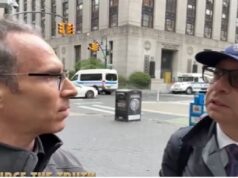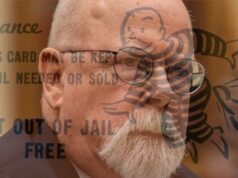A New York federal appeals court on Wednesday ordered the unsealing of up to 2,000 pages of judicial documents that are expected to show evidence relating to whether New York financier Jeffrey Epstein and his partner, Ghislaine Maxwell, were recruiting underage girls and young women as part of an international sex trafficking operation.
The decision comes two days after the Miami Herald urged the court to issue a ruling in the civil case in the wake of last week’s Justice Department announcement in the federal criminal case that it would not void Epstein’s controversial 2008 non-prosecution agreement.
Using others as recruiters, Epstein lured underage girls to his waterfront estate in Palm Beach from 1997 to 2006 under the guise that he was hiring them to give him massages. He sexually abused them, the girls told authorities, then paid them to recruit other girls, mostly 13 to 16 years old. Epstein, now 66, was never federally prosecuted, having received immunity in exchange for pleading guilty to lesser charges in state court in 2008.
Maxwell, 57, the daughter of the late publishing magnate Robert Maxwell, has never been charged with a crime and has denied allegations that she acted as a “madam’’ of the operation. She nevertheless fought to keep the records in the New York civil case sealed.
In addition to the Miami Herald, assorted other news organizations, including The New York Times and The Washington Post, filed a brief asking the court to release the documents. Social media blogger Michael Cernovich and Epstein’s attorney, Alan Dershowitz, also sought unsealing of some of the records.
The New York case, filed in 2015, was brought by Virginia Roberts Giuffre, who claims that she was trafficked by Epstein and Maxwell to wealthy and powerful politicians, lawyers, academics and government leaders when she was underage. Giuffre sued Maxwell for defamation after Maxwell publicly denounced her as a liar.
The case was settled in Giuffre’s favor in 2017, several sources have told the Herald. Nearly all the documents filed in connection with the case, however, were sealed. The Herald was unsuccessful in reaching Maxwell’s lawyer, Ty Gee, for comment Wednesday.
The Herald, as part of a November investigation called “Perversion of Justice,” went to court to unseal all the records in January. A lower court ruled against the newspaper, and the appeals court heard arguments by the Herald, Cernovich and Dershowitz in March.












